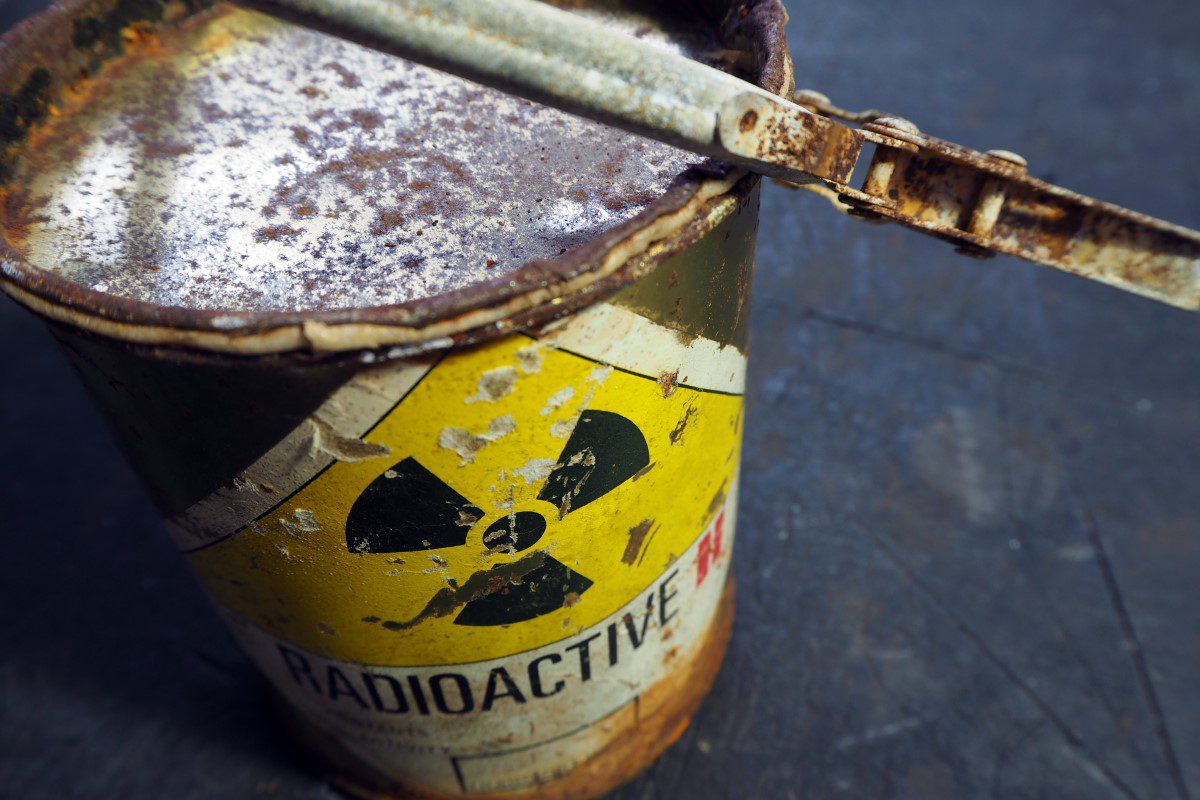
In Maine, hazardous waste disposal in winter can present several challenges for generators. Without proper planning, the impact of storms, ice, snow accumulation, and plunging temperatures—essentially a combination of weather and climate—can increase the risk of hazardous material spills, leaks, and improper storage. Preparing for seasonal challenges in your hazardous waste management is essential to ensure the safe handling, storage, and disposal of hazardous materials during colder months.
The Challenges of Winter Storage
Storing hazardous waste outside during the winter months can be a safety hazard and lead to severe issues, especially if the hazardous material you’re storing is subject to freezing. Though this depends on the material’s properties, if the hazardous waste you’re storing can freeze, it may cause several issues.
The most notable among these is container ruptures, mainly when plastic containers are used. Even if the containers are on a loading dock and not directly exposed to the elements, when left outside and temperatures plunge, it can lead to severe problems. As the waste expands and contracts with temperature fluctuations, it could threaten the container’s structural integrity, causing it to become brittle and crack, increasing the risk of leakage during thaws.
The same applies to lab packs if left outside. If any of the smaller hazardous waste containers within the drum rupture, they could spill or leak into the container or smaller containers. If more than one of the smaller containers ruptures, there is a genuine risk of a harmful mixture of different hazardous wastes, creating a potentially highly volatile substance.
Weather events are another concern when hazardous waste is stored outside in winter. Drums could be knocked over during a storm by falling debris, a winter wind, or a snow plow, which could lead to spillage. Poorly secured container lids could be blown off in a winter storm, leading to hazardous material spills. Snow plowing and accumulation could also block access to hazmat drums, preventing their timely disposal. The EPA and Maine DEP strictly regulate such incidents, emphasizing the importance of prevention and compliance. It is crucial to ensure that containers are securely closed and adequately stored during winter with easy access to prevent any potential leaks, spills, or compliance issues.
Regarding winter storage, the time that hazardous waste can be stored at your site is limited by your generator status. For instance, SQGs (Small Quantity Generators) of hazardous waste must follow specific storage requirements, which include limitations on the amount accumulated on-site. By law, hazardous waste materials must be properly stored, managed, and disposed of within the regulatory time frame, in compliance with federal, state, and local regulations to ensure environmental health and safety.
Prepare a Winter Hazardous Waste Plan for Your Facility
The challenges associated with safe and legal hazardous waste management become even more pronounced as the weather deteriorates, bringing capacity, weather, and human-factor issues to the forefront. As mentioned, inclement weather, such as heavy rain, snow, high winds, and extreme temperatures, can compromise the integrity of storage containers if left outside, leading to potential leaks or spills. To mitigate these risks, it is essential to take proactive measures to avert any potential hazards that winter may bring.
In preparing your winter safety plan, waste material should always be stored in a protected area, keeping the hazardous waste containers out of the rain and snow and protecting them from the wind. It would be best to use temperature-controlled storage areas to reduce the impact of cold temperatures on chemicals. However, if an outside wall surrounds the storage area within the building, you should know the freezing points of all hazardous waste materials stored there. Refer to the safety data sheets on the material and understand the risks if the material freezes.
As an alternative to long-term, on-site storage over winter, consider arranging regular safe transport and disposal of your hazardous waste with your hazardous waste service provider. Regularly scheduling the transportation of hazardous waste to a disposal facility during winter offers several benefits, including reducing the risk of hazardous material buildup, which can become more difficult to manage in cold or snowy conditions. It helps prevent leaks or spills caused by freezing temperatures that can damage storage containers. Regular transport also minimizes the likelihood of hazardous waste exposure to extreme weather, reducing environmental and health risks. Consistent scheduling ensures compliance with regulations, helps maintain operational efficiency, and avoids potential disruptions caused by winter storms or road closures.
Contact the Hazardous Waste Professionals at MLI Environmental
Preparing a winter hazardous waste plan for your facility should include proactive steps to address the challenges associated with Maine’s unpredictable winter weather conditions. If your organization faces hazardous waste disposal challenges this winter, contact MLI Environmental. Located in Maine, we are one of New England’s leading hazardous waste service providers and one of the most reliable hazardous waste disposal companies. To help you prepare your winter plan, or to learn more, contact MLI today.
